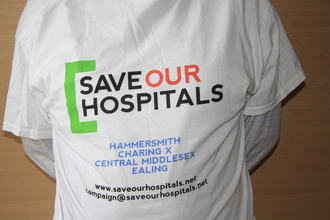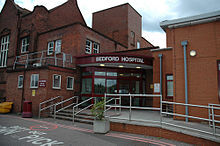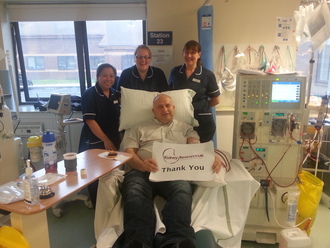-
Be Child Cancer AwareApproximately 4,000 new cases of cancer in children and young adults are diagnosed in the UK each year. Be Child Cancer Aware, a parent led and run charity has already sent out millions of signs and symptoms awareness cards with the result that a number of families have received an early diagnosis. Ben's diagnosis is featured on their website. We ask the UK government to officially support this campaign to empower parents with the knowledge that might save the life of a child they know or love. The charity Be Child Cancer Aware introduced and has been successfully leading this awareness campaign for over 4 years without any official support. They now look to the government to recognise the importance of knowing the main signs and symptoms of all childhood cancers.2,545 of 3,000 SignaturesCreated by John Drummond
-
The Headsmart Campaign for the earlier diagnosis of children's brain tumoursBrain tumours are the biggest cancer killer of children and teenagers in the UK and our diagnosis time is slower than similar countries to us. Ashya King required two operations to remove his brain tumour, which was reportedly the size of a satsuma. His situation echoes that of our son David, who was treated at the same hospital. Had David's tumour been diagnosed earlier, it would have been smaller. He would probably have needed only one operation instead of the 11 that he endured. I knew nothing about the symptoms of brain tumours at that time. Had I been more aware, I would have taken our son to the doctor weeks earlier. I believe this would have resulted in a better outcome for David, who died in 2012, aged 16. Most parents know the symptoms of meningitis. Few know the symptoms of a brain tumour and yet both these illnesses represent the same risk to a child. The HeadSmart campaign is designed to raise awareness of the symptoms of brain tumours in children, with the sole aim of reducing the average diagnosis time and bringing UK diagnosis times into line with other western countries. Late diagnosis of childhood brain tumours in the UK causes unnecessary suffering, disability and death and is unacceptable. The little help I've received so far from the Department of Health, has been conditional on my NOT being allowed to acknowledge it in the national press. As a mother who had to watch her son die from spinal tumours and full dementia, suffering from a disease that might have been prevented by earlier diagnosis, I beg you to sign this petition and enlist the public help of Jeremy Hunt. THANK YOU7,113 of 8,000 SignaturesCreated by Sacha Langton-Gilks
-
Moratorium on A&E closures and hospital reorganisations- Local people, across the country, are demonstrating that they are opposed to reorganisation plans - In many place there was totally inadequate consultation about plans for A&E closures and wider hospital reorganisations - Urgent Care Centres are an untried alternative to local A&Es - A&E services are under severe strain at present - further reducing these as we come into winter means lives will be put at risk - Reorganisations are driving an increasing privatisation of our NHS together with the Health and Social Care Act and growing threats from TTIP The petition is the initiative of Save Our Hospitals: Hammersmith and Charing Cross.3,220 of 4,000 SignaturesCreated by Merril Hammer
-
STOP ABUSED CHILDREN BEING FAILED BY A BROKEN CHILD PROTECTION SYSTEMChildren’s social and mental health services are failing to protect vulnerable children in the UK. It’s not just Rotherham though. The NSPCC estimates that for every child on a child protection plan, there are another eight who are being abused or neglected. 500 Children’s Centres have closed since 2010 and 73% of Social Workers say they can’t do their jobs properly. Two thirds of local authorities have cut their budgets for child and adolescent mental health and 88% of Social Workers say that budget cuts have left children at increased risk of abuse. Huge numbers of unfilled social worker posts (3800 in England alone) are leading to untold misery for tens of thousands of children. This is leaving children at risk and the workers who have to try and protect them, demoralised and struggling to cope. “Enough is Enough”, a recent report from the Centre for Social Justice, describes the current child protection and mental health system as “abhorrent” and that suffering children face “grotesque injustice.” Now an Independent Children’s Task Force, made up of child protection experts, has been formed by Kids Company’s SEE THE CHILD. CHANGE THE SYSTEM campaign. The task force will completely redesign child and adolescent social care and mental health services. We hope this petition will persuade all the political parties to support the Task Force's new delivery model - and to commit to piloting it in two Local Authorities so it can be put to the test. It’s true that children can’t vote and vulnerable children are completely invisible. It shouldn't be like this and with your help we need to stand up for them and show politicians that we care. No child or young person should be left to suffer alone. This is the nation’s best hope of ensuring that all abused children can get the help they need, when they need it. Please sign and share this petition now. Find out more at: www.seethechild.org Watch the film at: http://youtu.be/3rwkrp9Akps The campaign and Independent Children's Task Force are supported by the following organisations; The NSPCC, Action For Children, Barnardo’s, The Children’s Society, National Children’s Bureau, The Royal College of Nursing, The Royal College of General Practitioners, The Royal College of Psychiatrists, The Health and Care Professions Council, The Royal Society for Public Health, The British Association of Social Workers, The National Association of Head Teachers, UNISON, The National Union of Students, The National Union of Teachers and the National Association of Social Workers in Education. References: NSPCC. (2014). ‘How safe are our children?’ Young Minds, 2014, Cuts to CAMHS services Children and Young People Now, LGA warn of cuts, 2014 Children & Young People Now, Social Work posts unfilled, 2014 Community Care Survey of Social Workers. 2013974 of 1,000 Signatures
-
Commit The Labour Party to the NHSThe public are in very real danger of losing the NHS as we have come to love it if the Conservatives retain power after May 2015. The NHS at its very best is universally popular - across supporters of the main political parties. But only Labour has the chance to end the privatisation and marketization of our health care. Were Labour to come out in support of the 5 Points in my Petition, they would enjoy cross-Party support and earn the right to rule.19 of 100 SignaturesCreated by David Owen
-
Save Bedford HospitalWithout a hospital for the whole of Bedford and its surrounding area lives will be lost! Milton Keynes is our nearest hospital already overstretched because of the growth of Milton Keynes. It is totally unacceptable to leave the County town of Bedford without a hospital. People will die as a direct result.3,452 of 4,000 SignaturesCreated by Marianne Baddiley
-
Keep breast surgery at New Cross HospitalHaving to travel further than necessary to Cannock Chase Hospital for breast surgery, having never visited the hospital before, will place patients, their families and carers under even more stress. The Breast Cancer Action and Support Group feels that the consultation process on the proposed changes to services has been rushed and not well-publicised. Many Wolverhampton residents the group has spoken to are not even aware of the proposed changes, or that a consultation period should be allowed.444 of 500 SignaturesCreated by Janice Graham
-
999 nhs tredegarIt was "born" in Tredegar & vital for the health and welfare of the whole of the UKs population and should remain as it was intended. FREE for the people163 of 200 SignaturesCreated by Marianne Phillips
-
Paying for prescriptions in WalesAt the moment hospitals across Wales and the NHS in Wales are struggling to survive and staff are stretched to the limit. . We need to fund more nursing staff and also to stop the current ridiculous abuse of the system where people go to A&E just to get a packet of Paracetamol or Calpol for nothing or ask their doctors for medication they do not need and probably will not take. A basic charge of £3.00 would stop such abuse of the system, and there could be a cap of £10.00 if people needed several items. This additional money would transform our NHS in Wales and provide jobs for much needed nursing staff.9 of 100 SignaturesCreated by Joanna Spikes
-
Kidney Dialysis funding cut backs announced August2014The way that these potentially harmful new Tariffs are being introduced does not accord with the stated intention of NHS England and Monitor who say they are committed to setting national tariff in a manner consistent with the principles of transparency, evidence-based policy – making, consultation with the sector, and impact assessment, as well as in accordance with statutory duties.12,820 of 15,000 SignaturesCreated by Peter Stevens
-
Say NO to Increased Parking Charges for staff at RCHTThe staff provide a service to the community and they feel they need more consideration to any changes being made. They are passionate about their Trust and the service they provide but feel unappreciated with the lack of communication regarding important issues such as the increase in parking charges.2,774 of 3,000 SignaturesCreated by David Philips
-
STOP MOORSIDE: "Biggest Nuclear Development in Europe"Cumbria already has Sellafield. The Sellafield site has the biggest amount of radioactivity on the planet. A major accident involving the liquid high level waste tanks would have catastrophic consequences and make the area uninhabitable for many generations. The area around the Sellafield site should be an untouchable buffer zone to: a) provide a measure of safety for surrounding towns and villages b) to accommodate the documented leakage of radiation from the Sellafield site into groundwater. c) to minimise the target area for terrorist attack (instead of doubling it) Instead of honouring a beautiful wildlife diverse landscape bought by the public purse and guaranteeing a buffer zone around Sellafield the UK government are planning to sell off a vast area. The land stretches to the villages of Beckermet, Braystones and Calder Bridge. Not only this but the companies who are being wooed to buy the land are the very same companies responsible for Fukushima. "The Moorside Project" is being promoted by NUGEN a company 100% owned by Toshiba. Toshiba’s proposed three new reactors are AP1000s. These are the next generation of the same old uranium burning technology. The difference is that these reactors burn the uranium for longer and harder. The resulting radioactive wastes are much hotter and have to be cooled for decades longer. The NDA have told Radiation Free Lakeland that the fresh water resource for cooling is “a matter for the operators.” Currently Sellafield uses over 4 million gallons of water daily to abstracted from Wastwater, the River Ehen, the River Calder and boreholes in the area. Sellafield stopped producing electricity in 2003. The elephant in the room is of course Toshiba’s track record in nuclear safety. Toshiba supplied the steam generator, architecture and reactor for Fukushima reactors numbers 3 and 5, while Hitachi (merged with Toshiba) supplied the reactor, steam generator and architecture for Fukushima reactor no 4. The beautiful wildlife diverse land: http://mariannewildart.wordpress.com/2014/08/10/stop-moorcide/ Contaminated Groundwater - Sellafield https://attachment.fbsbx.com/file_download.php?id=773168039435386&eid=AStZ3li3tSP5MQf_c8WSzWkcyXiQmeST9PaQWg1eXJj-piwqsP2voi22A76xtKEBQRc&inline=1&ext=1434548939&hash=ASuZJtM5OwSjtXCA http://www.oecd-nea.org/rwm/wpdd/rcd-workshop/C-2___OH_The_Sellafield_contaminated_land_and_groundwater.pdf.pdf After– Fukushima – Daiichi - Toshiba looks for new orders overseas http://www.reuters.com/article/2013/10/03/us-toshiba-nuclear-idUSBRE99204I20131003 Hitachi, Toshiba and GE Merge Nuclear Operations http://www.modernpowersystems.com/news/newshitachi-toshiba-and-ge-merge-nuclear-fuel-operations http://www.greenpeace.org/international/en/news/Blogs/makingwaves/how-can-the-nuclear-industry-profit-from-nucl/blog/44192/ Escalating cost of ‘clean up’ http://www.theguardian.com/environment/2014/feb/11/sellafield-consortium-cost-clean-up Not enough Fresh water to cool new build wastes http://mariannewildart.wordpress.com/2011/11/18/why-has-the-wettest-place-in-england-not-got-enough-freshwater/ http://enenews.com/watch-top-economist-nuclear-power-is-over-frankly-i-think-from-a-business-perspective-its-over-i-think-its-over-video What the industry is gleefully saying about 'Moorside' http://www.spyghana.com/moorside-nuclear-power-project-course/ MOORSIDE REPORT by Radiation Free Lakeland 19.9.14 http://mariannewildart.files.wordpress.com/2014/09/moorside-rafl-report-19-9-141.pdf NEW report commissioned by Radiation Free Lakeland is critical of the AP1000 reactor design. The report has been written by the Edinburgh Energy and Environment Consultancy. The report says that "The AP1000 reactor design is not fit for purpose and so should be refused a Design Acceptance Confirmation (DAC) and Statement of Design Acceptability (SDA)″. http://www.theecologist.org/blogs_and_comments/commentators/2988356/ap1000_reactor_design_is_dangerous_and_not_fit_for_purpose.html The AP1000 Nuclear Reactors proposed for Moorside in Cumbria and their Environmental Impact - Edinburgh Energy and Environment Consultancy July 2017 https://issuu.com/radiationfreelakeland/docs/moorside_-_environmental_impact_by_13,002 of 15,000 SignaturesCreated by Marianne Birkby
Hello! We use cookies to improve your experience by providing insights into how the site is being used. Find out more.
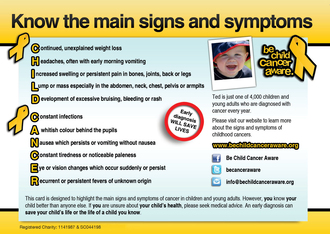
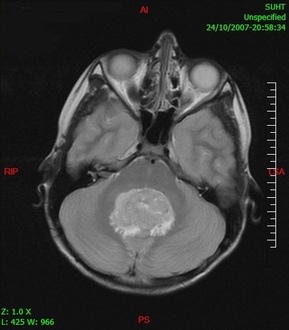.jpg)
